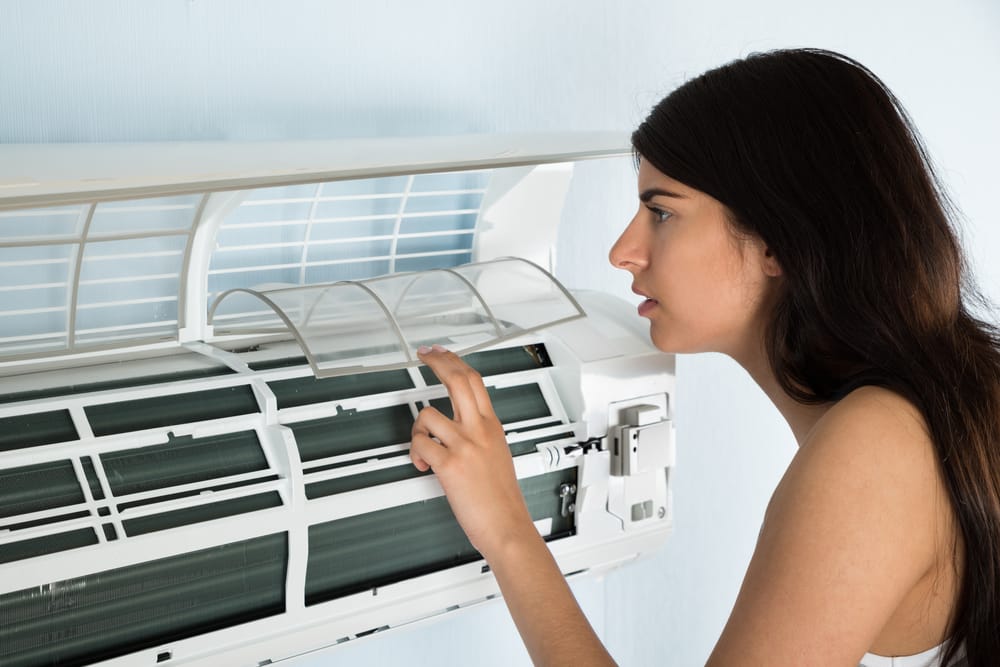Deciding when to replace your air conditioner is a critical home maintenance decision that affects comfort, costs, and energy efficiency. A reliable air conditioning system is essential for maintaining a comfortable living environment, especially during hot summer months. This guide will help you identify the signs that it might be time to replace your air conditioner. Key indicators include frequent breakdowns, escalating energy bills, and uneven cooling. Additionally, considering the age of your unit and the benefits of newer, more efficient models can inform your decision. By staying well-informed, you can ensure your home remains a cool and inviting space.
Increasing Repair Frequency
- Signs of Trouble: If you find yourself calling for repairs more frequently over the last couple of years, this is a clear sign that your AC system is likely on its last legs.
- What to Do: Keep track of the frequency and cost of repairs. When these costs approach 50% of the price of a new air conditioner, it’s generally more cost-effective to opt for an AC replacement in Ogden.
Rising Energy Bills
- Signs of Trouble: An unexpected increase in your energy bills can often be traced back to an aging AC unit becoming less efficient.
- What to Do: Compare your energy bills from the same months in previous years. If you notice a significant increase, consider having an energy audit conducted or consult with a professional to discuss the potential benefits of replacing your air conditioner.
Inadequate Cooling
- Signs of Trouble: If some rooms are too hot while others are too cold, or if your AC can’t maintain a comfortable temperature, it might be time for an upgrade.
- What to Do: First, ensure that your AC unit is the correct size for your home. An improperly sized unit can lead to inefficiency and discomfort. If sizing isn’t the issue, then AC replacement might be the necessary step.
AC Unit Age
- Signs of Trouble: The average lifespan of an air conditioning unit is about 10-15 years. If yours is within this range or older, it might be time to start shopping for a new one.
- What to Do: Check the manufacture date of your unit. If it’s nearing the end of its typical lifespan and you’re experiencing other issues listed here, replacing it could be more economical and efficient in the long run.
Freon (R22) Usage
- Signs of Trouble: If your air conditioning unit uses R22 Freon, you should know that this refrigerant is being phased out worldwide due to environmental concerns.
- What to Do: Since replacing Freon with a more environmentally friendly refrigerant often isn’t feasible or cost-effective, the need for an upgrade becomes inevitable.
Noise and Dust Issues
- Signs of Trouble: Excessive noise or an increase in dust throughout your home can be symptoms of an aging AC system.
- What to Do: Check for leaks in your ductwork and ensure that your AC unit is clean and well-maintained. Persistent noise after addressing these issues could indicate it’s time for a new system.
Conclusion
Determining when to replace your air conditioner requires evaluating its performance and impact on your home environment. Recognizing these signs can enhance comfort, improve air quality, and reduce energy costs. A key indicator is a spike in energy bills without increased usage, suggesting your unit is overworking. Frequent breakdowns and expensive repairs also signal that your air conditioner may be nearing the end of its life. Additionally, units older than 10-15 years may lack the efficiency of newer models equipped with advanced technology and energy-saving features. Investing in a new AC installation can significantly improve your home’s comfort and efficiency, offering a reliable cooling solution for years to come.

